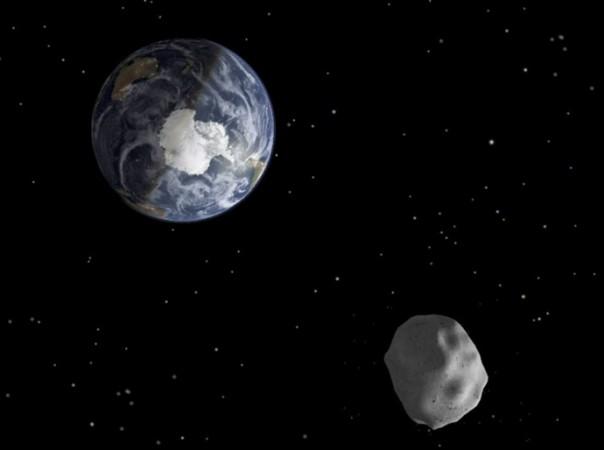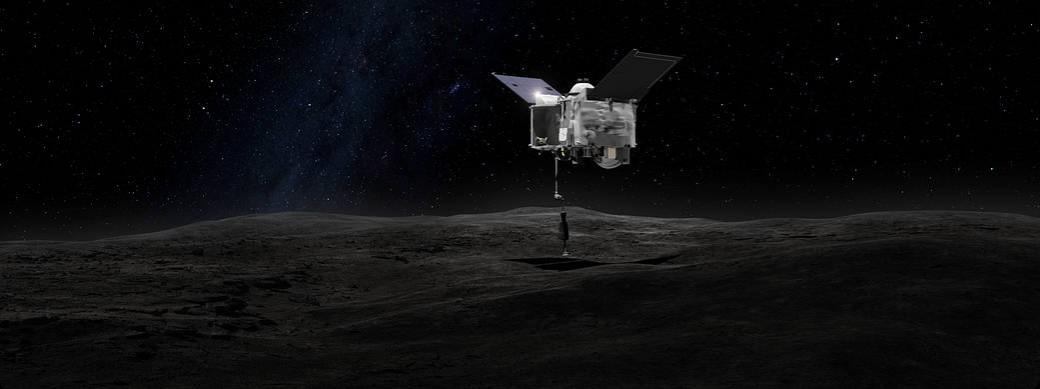
Earth has narrowly escaped various space rock collisions and they have made news quite a number of times, here's our list of top five news made by space rocks:
1. Asteroid Bennu
NASA had analysed tiny near-Earth asteroid Bennu's potential to clash with Earth with the help of its OSIRIS-REx spacecraft. The mission was launched in September 2016, and the spacecraft is likely to reach Bennu in 2018, collect a sample of 2.1-ounce from the space rock and return to Earth in 2023. According to researchers, Bennu was found to have a possibility of one in 2,500 of crashing with Earth.

Asteroid Bennu, which was previously known as 1999 RQ36 originated out of the violent collision, which hurled through space for millions of years and it was dismembered by the gravity of planets.
2. Asteroid 2000 ET70
In October 2016, astronomers from the US Universities had stated that a space rock -- asteroid 2000 ET70 -- was going to hit Earth and destroy all the life forms. This "potentially hazardous asteroid" is two miles wide (approximately 3.2 km).
In 2012, this dangerous space rock passed by Earth at 18 lunar distances, which is extremely hazardous. But NASA had rubbished the claims about any asteroid collision taking place, "NASA knows of no asteroid or comet currently on a collision course with Earth, so the probability of a major collision is quite small. In fact, as best as we can tell, no large object is likely to strike the Earth anytime in the next several hundred years," the space agency mentioned in a statement.
3. Asteroid 2017 AG13
Scientists from University of Arizona had spotted a small asteroid dubbed 2017 AG13 on January 7, 2017, it passed by Earth on January 9, 2017, at half the distance from the moon. The space rock passed by Earth at a speed of around 9.9 miles per second (16 km per second).
The 34 meters (111 feet) wide asteroid would have injured more than a thousand people if it was going to collide, according to an expert Eric Feldman.
4. Asteroid 2017 BH30
On January 29, 2017, Earth had again narrowly escaped getting hit by an asteroid dubbed-- 2017 BH30. This space was as big as a pickup truck. It passed by at a distance which is equal to 13 percent of the distance between the Earth and the Moon, which is around 32,200 miles (51,820 km).
NASA's JPL revealed this asteroid is about 5.8 metres (19 feet) wide. Researchers even stated that this space rock wouldn't have had caused much harm even if it had collided with Earth due to its small size.
5. Earth is in the danger of being hit by an asteroid on June 30, 2017
The latest and scariest case of asteroid collision so far is going to occur soon which will have the potential to wipe out human life from Earth, Astrophysics researchers from Queen's University Belfast, Northern Ireland forecasted. This collision has been compared to the Tunguska event by the researchers, which took place in 1908 near Stony Tunguska River in Siberia in which a meteoroid damage a total of 800 square miles, but no known human casualties were there.
Professor Alan Fitzsimmons along with Brian Cox and astronauts, including Apollo 9 astronaut Rusty Schweickart and International Space Station astronaut Nicole Stott, stated that Earth is in the danger of being hit by an asteroid on Friday, June 30, 2017, which is the same day when the Tunguska event took place in 1908. This collision is likely to end human life on the planet.
"It is a case of when an asteroid collision will happen, rather than if it will happen, stated Professor Fitzsimmons.















